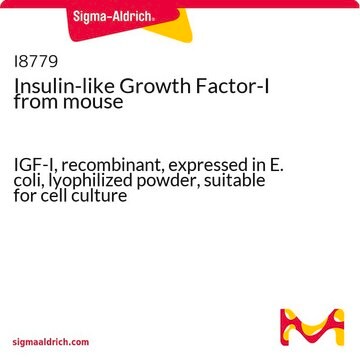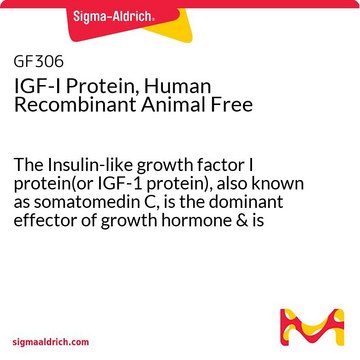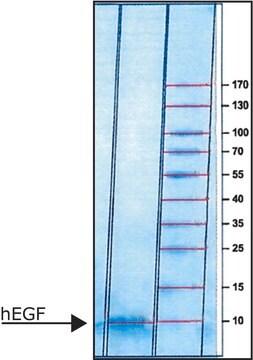I8904
Insulin-like Growth Factor-II from mouse
>97% (SDS-PAGE), recombinant, expressed in E. coli, lyophilized powder
Synonym(s):
IGF-II
About This Item
Recommended Products
Product Name
Insulin-like Growth Factor-II from mouse, IGF-II, recombinant, expressed in E. coli, lyophilized powder
biological source
mouse
Quality Level
recombinant
expressed in E. coli
Assay
>97% (SDS-PAGE)
form
lyophilized powder
quality
endotoxin tested
mol wt
~7.4 kDa
packaging
pkg of 5X50 μg
pkg of 50 μg
impurities
<1.0EUper1mg (LAL test)
UniProt accession no.
storage temp.
−20°C
Gene Information
mouse ... IGF2(16002) , Igf2(16002)
General description
Biochem/physiol Actions
Physical form
Analysis Note
related product
Storage Class Code
11 - Combustible Solids
WGK
WGK 3
Flash Point(F)
Not applicable
Flash Point(C)
Not applicable
Personal Protective Equipment
Regulatory Listings
Regulatory Listings are mainly provided for chemical products. Only limited information can be provided here for non-chemical products. No entry means none of the components are listed. It is the user’s obligation to ensure the safe and legal use of the product.
JAN Code
I8904-50UG:
I8904-50UG-PW:
I8904-BULK:
I8904-5X50UG:
I8904-VAR:
Choose from one of the most recent versions:
Already Own This Product?
Find documentation for the products that you have recently purchased in the Document Library.
Articles
Insulin-like Growth Factors (IGF)
Our team of scientists has experience in all areas of research including Life Science, Material Science, Chemical Synthesis, Chromatography, Analytical and many others.
Contact Technical Service







